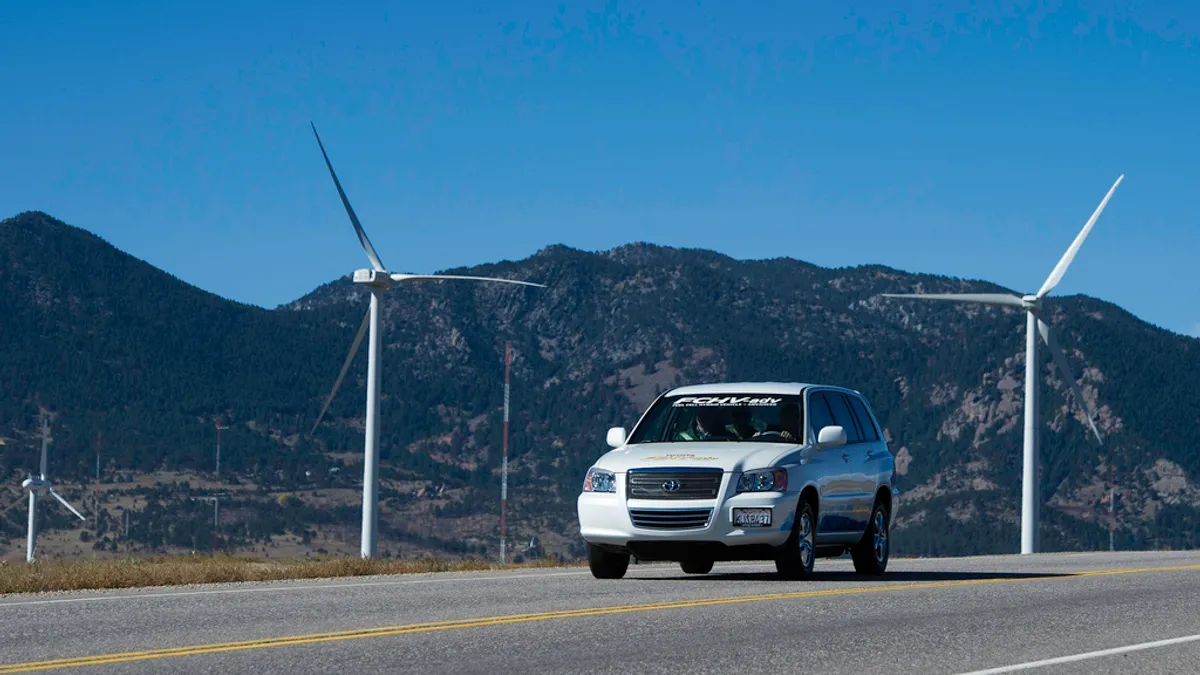Dive Brief:
-
Colorado Democratic Gov. Jared Polis on Thursday issued an executive order aimed at driving electric vehicle (EV) adoption in the state.
-
The order calls for an allocation of $70 million from the Volkswagen emissions settlement toward supporting transportation electrification and requires the Colorado Department of Transportation and the Colorado Department of Public Health and Environment to establish a Zero Emission Vehicle policy.
-
Colorado has a goal to get 940,000 EVs on the road by 2040 and offers a $5,000 tax credit toward EVs. The state has also entered a partnership with seven other western states to develop chargers across the region, making travel more accessible to EV drivers.
Dive Insight:
As more states move toward ambitious clean energy goals, transportation electrification is an important piece for many governing bodies aiming to reduce their overall carbon emissions.
Polis campaigned on what was at the time the most aggressive renewable energy goal in the country —100% renewables by 2040 — and says the benefits of electric vehicles will only increase as the state moves toward that goal.
The state's previous governor, John Hickenlooper, D, last June issued an executive order requiring the state to adopt California's aggressive vehicle emission standards. Both Hickenlooper and Polis' actions drew wide support from clean energy stakeholders, including the Union of Concerned Scientists (UCS) and the Environmental Defense Fund.
"Thanks to Governor Polis, Colorado could join the forward-looking states who are building a strong electric-vehicle market," said Michelle Robinson, director of the clean vehicles program at UCS in a press release. "With smart policies, more Colorado drivers could reap the benefits of electric vehicles."
The new order also directs the creation of an "interdepartmental transportation electrification workgroup" to further support transportation electrification adoption.
EVs are predicted to make up 28% of light duty electric vehicle sales after 2025, and other states are collaborating with utilities to roll out programs to support their expansion phase by phase.
On Monday, Maryland's Public Service Commission approved an electric vehicle infrastructure program set to roll out 5,000 chargers. Though a scaled-back version of the original plan, stakeholders say the program will likely help spur market growth for future programs.















